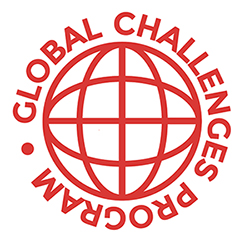An empowering therapeutic program for people with a lived experience of severe mental illness, now available as a training program for industry
The Recovery Camp is an Australian-first therapeutic recreation program for people with a lived experience of severe mental illness.
For future health professionals, including nursing, psychology, dietetics, and exercise physiology students, who also participate in Recovery Camp it is an immersive, experiential, clinical learning experience that focuses on strengths not illness.
Many people with a mental illness have low self-esteem, lack confidence, and are socially isolated. The Recovery Camp provides a means for participants to challenge themselves in a safe environment, connect with others, and re-discover their self-worth.
Occurring over five days, all participants are involved in a structured program, which includes both challenging and rejuvenating experiences, such as an 18-metre giant swing, flying fox, archery, tai chi, and art.
The Recovery Camp is significant and innovative as it is far removed from existing approaches surrounding mental health education and intervention in Australia.
It does not centre upon ‘typical’ clinical in-patient settings where consumers are often their most unwell and symptomatic. Instead, it places the consumer in the driving seat to ‘teach’ students from a lived experience perspective. Students also get to see people with a mental illness when they are functioning well within the community.
Further, Recovery Camp provides this innovative and invaluable clinical placement opportunity for students, where there is otherwise a paucity of mental health clinical placements.
Research to date suggests Recovery Camp increases self-efficacy and self-determination, whilst decreasing social isolation, among participants with a mental illness.
In addition, future health professionals are empowered to learn translational clinical skills, bolstering their ability to provide quality health care. Subsequently, stigmatising attitudes are decreased and mental health clinical confidence is boosted.
More information about this project:
- Placement on the path to recovery (UOW's The Stand)
- Recovery Camp joins entreprenuerial program (iAccelerate)
> Back to UOW Research Impact
- SCHOOL OF NURSING, UOW
Professor Lorna Moxham
Dr Susan Sumskis
Renee Brighton
Chris Patterson - SCHOOL OF EDUCATION, UOW
Dr Dana Perlman - GLOBAL CHALLENGES, UOW
Ellie Taylor - UNIVERSITY OF QUEENSLAND
Dr Shane Pegg
Copyright © 2014 University of Wollongong. CRICOS Provider No: 00102E Privacy | Disclaimer & Copyright Info | Site Map


